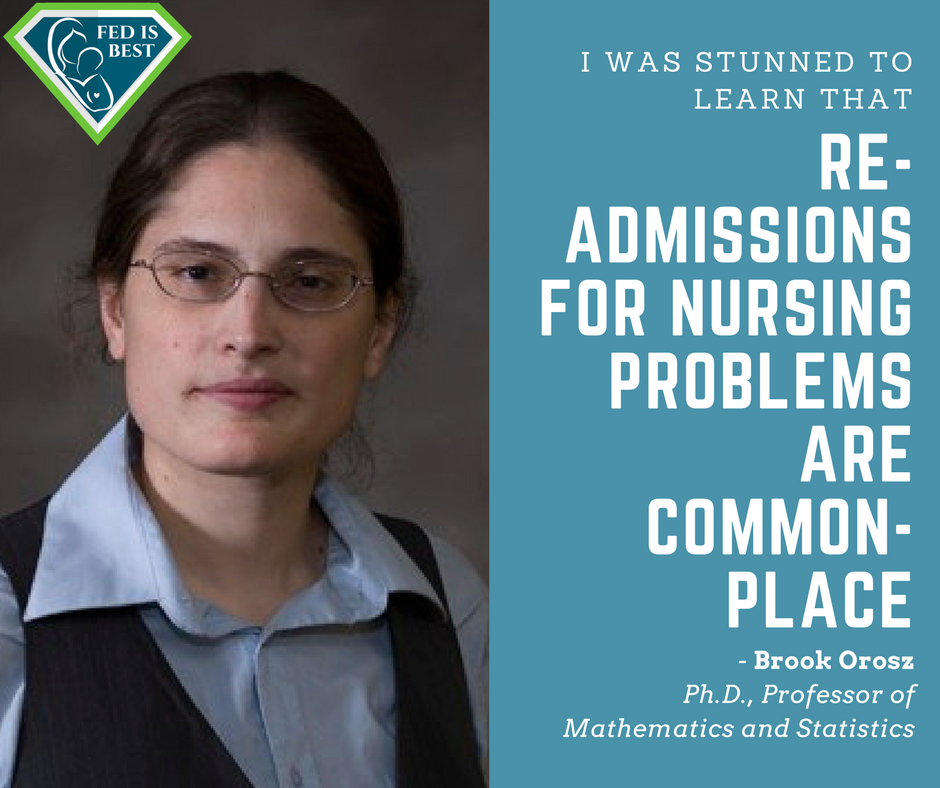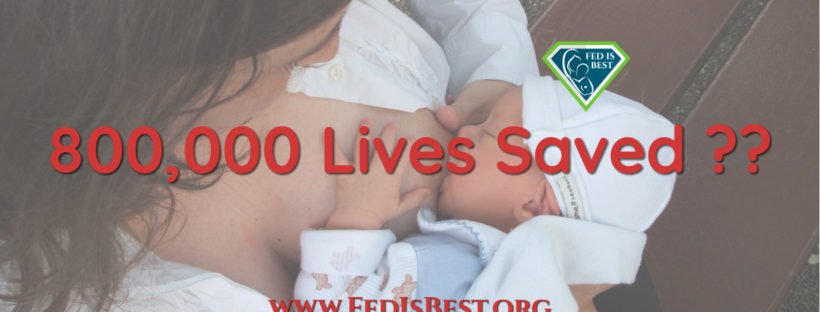Written by Brooke Orosz, PhD
In 2016, an article in The Lancet claimed that increasing breastfeeding rates worldwide could save 800,000 children per year. The first problem with this study is that the authors are somewhat overly optimistic in interpreting the evidence for breastfeeding. The second is that, although the vast majority of those hypothetical lost lives are in poor countries, this study has been used as a club to shame women into breastfeeding in wealthy countries.
The biggest problem, however, is that the article assumes “near-universal” exclusive breastfeeding until 6 months, with complementary foods until at least 12 months. They provide no evidence that this goal is realistic or even possible, and all available evidence suggests it is not possible.
There are no societies, today or in the past, that have near-universal exclusive breastfeeding for six months. While it works for some individual babies, no one has ever made it work across an entire society, not without allowing a lot of babies to starve, anyway.
In fact, it’s not at all clear that six months is even the best age to introduce complementary foods. Many babies outgrow their iron stores or their mother’s milk supply earlier, and they benefit from other foods at 4 to 5 months old. Earlier introduction of solids may even reduce the risk of food allergy.
Mothers in low and middle income countries do not fail to breastfeed because they are too stupid to know it’s important, they fail because breastfeeding doesn’t always work. Because women die in childbirth, or suffer complications so serious they are unable to care for the baby. With limited medical care, this is sadly commonplace. Because women are undernourished, which impairs their ability to produce milk. Because an unknown number of women across the population have insufficient glandular tissue and will not make enough milk under any circumstances. And because babies are born premature, sick, or otherwise unable to nurse effectively.
So, many women cannot breastfeed, even more cannot breastfeed exclusively, and even when breastfeeding is going well, there’s no reason to withhold solids until 6 months.
Sure, in a world in which mother and baby are always doing well after birth, and breastfeeding nearly always works out, then we can talk about “near-universal”. But it makes no sense to write public health goals based on completely unrealistic assumptions.
BROOKE OROSZ, PH.D., PROFESSOR OF MATHEMATICS AND STATISTICS
 Brooke Orosz, PhD is a professor of mathematics and the mother of a child who had to be hospitalized for dehydration due to insufficient breast milk intake. After her son’s crisis, she was stunned to learn that readmissions for nursing problems are commonplace, and that they are not tracked or penalized by health authorities. Since then, she has used her knowledge of statistics to study the problem and to advocate for evidence-based feeding protocols that put the baby’s safety and comfort first. Brooke will be delivering her second baby very soon, in a BFHI hospital again but she will be advocating and using our infant feeding plan to prevent accidental starvation–
Brooke Orosz, PhD is a professor of mathematics and the mother of a child who had to be hospitalized for dehydration due to insufficient breast milk intake. After her son’s crisis, she was stunned to learn that readmissions for nursing problems are commonplace, and that they are not tracked or penalized by health authorities. Since then, she has used her knowledge of statistics to study the problem and to advocate for evidence-based feeding protocols that put the baby’s safety and comfort first. Brooke will be delivering her second baby very soon, in a BFHI hospital again but she will be advocating and using our infant feeding plan to prevent accidental starvation–
Fed Is Best Infant Feeding Plan
Brooke’s story:
The hospital where he was born was Clara Maas. I cannot name one single staff member who was clearly negligent, I think it was more a case of him slipping through the cracks. The on-staff LC never checked on us after the first day, and I still don’t know exactly who knew what, when or who made which decision. Nevertheless, they allowed an at-risk newborn (37 weeks and Small-for-Gestational-Age) to go home without double-checking that he was safe or providing any special instructions for his care. Personally, I would not deliver another baby there.
Details of the incident have been reported to Clara Maas hospital in a formal complaint, and to the Joint Commission.
Do you need to know how to file a formal complaint to your hospital? We can help you: Writing Your Hospital
Resources:
The Religious and Cultural Bases for Breastfeeding Practices Among the Hindus
Markers of Lactation Insufficiency: A Study of 34 Mothers
Bust a Myth: Breastfeeding Advocates Need to Stop Using this Statistic!
Early exposure to cow’s milk protein is protective against IgE-mediated cow’s milk protein allergy.
Introducing Highly Allergenic Solid Foods
Iron Supplementation in Pregnancy or Infancy and Motor Development: A Randomized Controlled Trial
The limits of intensive feeding: maternal foodwork at the intersections of race, class, and gender.
